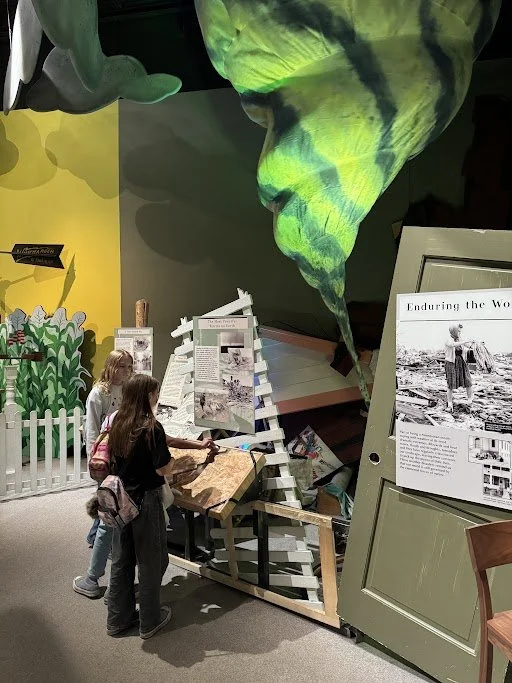written by Eileen McElrath, Elementary Program Director
““When the child goes out, it is the world itself that offers itself to him. Let us take the child out to show him real things instead of making objects which represent ideas and closing them in cupboards.” ”
We are excited to share an integral part of our Montessori elementary program: Going Outs. These student-initiated excursions are a cornerstone of Montessori education, providing students with hands-on, real-world experiences that extend their classroom learning.
If you would like to learn more or volunteer to chaperone a Going Out, please join us for a virtual Going Out Training on Friday, January 17th from noon-12:45 pm at the ZOOM LINK HERE.
What Are Going Outs? In the Montessori environment, students are encouraged to take ownership of their education, including pursuing interests and research topics that spark their curiosity. When students encounter questions or topics that require exploration beyond the classroom, they organize a Going Out to find the answers. This might include visiting a museum, a library, a local business, or a nature reserve. Going Outs differ from traditional field trips in that they are smaller, more focused, and planned and led by the students themselves.
Why Are Going Outs Important? Going Outs allow students to:
Develop independence and responsibility by planning the logistics of their trips.
Gain confidence and practice flexibility in navigating the world outside the classroom.
Engage with Imagination and Reason
Deepens their understanding of academic topics through real-world applications.
Practice Grace and Courtesy as they use social skills when interacting with experts and community members.
Developmentally, Second Plane children have a “gregarious instinct” and want to interact with others
Lets children learn from real experience (and mistakes)
How Do Going Outs Work?
Student-Driven Planning: Students identify a need to go out, research the destination, and determine the purpose of their visit.
Preparation: A small group of students create a plan, including contacting the location of the Going Out, contacting an adult to chaperone, planning transportation, and preparing any necessary materials.
Adult Support: A GRS staff member or adult volunteer accompanies the students to ensure safety but allows students to take the lead.
Follow-Up: Upon returning, students reflect on their experience, share their findings with classmates, and deepen their learning.
How You Can Help:
Volunteer: We often need adult volunteers to accompany small groups on Going Outs. Your role will be to supervise and support students while allowing them to lead. Volunteers need to attend one of the Going Out trainings and complete a free volunteer background check.
Share Resources: If you have connections to local organizations, expertise, or ideas for enriching Going Outs, we’d love to hear from you.
Encourage Independence: Support your child’s efforts in planning and preparation, such as helping them practice phone calls or organize supplies.
Student Spotlight: This fall, a group of students studying tornados organized a trip to the Minnesota History Center’s tornado simulator exhibit. They prepared thoughtful questions, took detailed notes, and are using this research to extend their self-selected big work. We are thrilled to see our students’ curiosity flourish and their confidence grow through these unique Going Out experiences.
Here is what the third years shared with the class about our celebration:
Henry- “People in China think the moon is very important. People celebrate this day with a festival. They celebrate the moon in autumn time.”
Amma- “We can eat corn beans and squash, the three sisters. They help each other like the Wampanoag people helped the pilgrims.”
Ezra- “My favorite harvest story is the three sisters and the fox.”
Kamaria- “I think harvest fest is a celebration of happiness and joy and festivity. The food we eat today is special because it reminds us about the people who came before us. On this holiday family time is the most important time of the year. “
Audrey- “Why I like this holiday is the colors and the food. We are going to bring that to you today. We have moon cake and apple cake and this holiday is about happiness and kindness.”
Margot- “The wild rice is important to the Ojibwe people. The rice is nice.”
Other classes find their own way to build community and celebrate togetherness. As we move into other holidays we will remember kindness, togetherness and be thankful for all we have.



